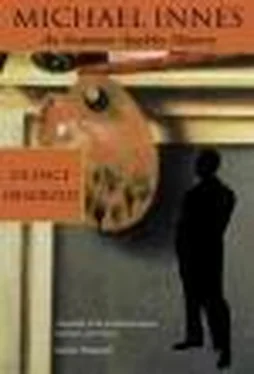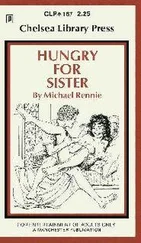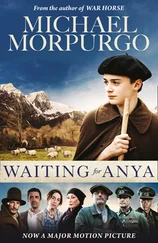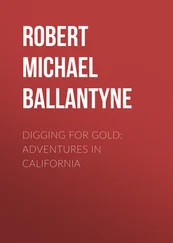Michael Innes - Lament for a Maker
Здесь есть возможность читать онлайн «Michael Innes - Lament for a Maker» весь текст электронной книги совершенно бесплатно (целиком полную версию без сокращений). В некоторых случаях можно слушать аудио, скачать через торрент в формате fb2 и присутствует краткое содержание. Жанр: Старинная литература, на английском языке. Описание произведения, (предисловие) а так же отзывы посетителей доступны на портале библиотеки ЛибКат.
- Название:Lament for a Maker
- Автор:
- Жанр:
- Год:неизвестен
- ISBN:нет данных
- Рейтинг книги:4 / 5. Голосов: 1
-
Избранное:Добавить в избранное
- Отзывы:
-
Ваша оценка:
- 80
- 1
- 2
- 3
- 4
- 5
Lament for a Maker: краткое содержание, описание и аннотация
Предлагаем к чтению аннотацию, описание, краткое содержание или предисловие (зависит от того, что написал сам автор книги «Lament for a Maker»). Если вы не нашли необходимую информацию о книге — напишите в комментариях, мы постараемся отыскать её.
Lament for a Maker — читать онлайн бесплатно полную книгу (весь текст) целиком
Ниже представлен текст книги, разбитый по страницам. Система сохранения места последней прочитанной страницы, позволяет с удобством читать онлайн бесплатно книгу «Lament for a Maker», без необходимости каждый раз заново искать на чём Вы остановились. Поставьте закладку, и сможете в любой момент перейти на страницу, на которой закончили чтение.
Интервал:
Закладка:
‘No indeed, Mrs Roberts. And what happened then?’
‘The McLaren body was just outside Ewan Bell the sutor’s. She ran in to him fair terrified and he took her home.’
‘And did Mr Bell see the ghost?’
‘That he did not.’
‘Does Mrs McLaren often see ghosts?’
My hostess was much struck by this question. ‘Fancy your asking that, sir! A Highland body she is and second-sighted; it’s her that says she foresaw the Erchany daftie come louping through the snow with news of the Guthrie’s death. And it was her that knew the Guthrie had the evil eye.’
‘Well, in your own words, Mrs Roberts, you couldn’t have better proof than that. And who was the next to meet the ghost?’
Mrs Roberts looked at me rather suspiciously. ‘The next would be Miss Strachan the schoolmistress.’
‘Miss Strachan. Now do you happen to know if this Miss Strachan had any reason to have Erchany and its affairs much on her mind?’
Mrs Roberts’ suspicion became plainly tinged with respect. ‘Faith, and that’s unco strange to ask! It was the Strachan quean that had a right awesome meeting with the laird at Erchany a while back.’
‘Quite so. And who else saw Mr Guthrie’s ghost?’
Mrs Roberts looked doubtful. ‘Well, I don’t for certain know that –’
‘In fact, nobody else! Just those two and not, as you suggested, a number of people?’
I was really quite remorseful over this examination, Mrs Roberts looked so dashed. ‘No,’ she said; ‘I suppose no one else really. Except, of course–’
At this point we were interrupted by the entrance of the lady’s husband, who appeared to be going round shutting up the inn for the night. ‘Mr Wedderburn, sir,’ he said, ‘you’ll surely be wanting a nightcap? And it will be a toddy, I’m thinking, in this dreich weather?’
Mrs Roberts seized my empty cup. ‘Mr Wedderburn, you’ll take another malted milk?’
I divined here some conjugal friction which I had no desire to exacerbate; murmuring an indistinguishable word I picked up my candle and betook myself to bed. But I verily believe that, for all my satisfactory demolition of the supernatural element in Mrs Roberts’ story, I half-expected to meet the ghost of Ranald Guthrie of Erchany in the corridor.
I was awakened in the morning by clamour; hastening to the window, I found this to proceed from the assembled young of Kinkeig, and to be occasioned by the appearance at the tail of the village of a tall and slender youth, armoured in the species of exquisiteness that defies exhaustion or disordered attire, and bearing on his shoulder – the prime cause, this, of the juvenile excitement by which I had been disturbed – implements which I presently identified as ski sticks and skis. It was to be conjectured that here was a visitor from Erchany; I dressed and hurried downstairs. As I had anticipated, the young man was awaiting me. He came forward and said: ‘I am Noel Gylby. I think you must be–’ I rather expected him to add ‘the person sent by my uncle.’ Instead, he concluded: ‘–the gentleman who has been good enough to come and help us?’
‘My name,’ I said, ‘is Wedderburn. And I have come to give what help I can.’
Warmly, but not without the deference proper in the young, Mr Gylby shook me by the hand. ‘Then, sir,’ he said, ‘begin by offering me breakfast!’
In the course of the hour ensuing I found Noel Gylby – though not perhaps without a due sense of his own charm – an agreeable and intelligent youth. His account of the events at Erchany was lively – in places, indeed, what Aeneas would call ‘hard boiled’ – but it was also confident and clear: I noted that if and when the time came here would be an excellent witness. And by extraordinary good fortune he had kept a journal at Erchany. He was good enough to hand it to me and I read it at once. I will here merely add a note on the events subsequent to his last entry.
The Erchany odd lad – orra lad, to give the phrase its local flavour – had reached Kinkeig, as Gylby predicted, shortly after dawn on Christmas Day. His exhaustion was such that it was some time before he could give an articulate account of himself; and it must have been between nine and ten o’clock before anything effective was done. A volunteer had to be found to struggle into Dunwinnie for the doctor, the telephone line having come down in the night. Even then there was likely to be delay; Dr Noble’s most practicable route to Erchany would be along the frozen length of Loch Cailie, and it would be unlikely that a vehicle could be prepared for him under a matter of hours. A similar delay marked the immediate relief of Castle Erchany. The Kinkeig constable was justifiably doubtful of keeping his bearings without Tammas, and so Tammas had to be given time to recover. Eventually the constable, Tammas and two strong lads set off some time after noon – the escort being occasioned, it may be suspected, by the constable’s sense that he was about to storm a citadel of the blackest magic. Making remarkable time, they reached Erchany soon after four. The constable inspected tower and body, took statements, pocketed keys and drank tea – by which time the hour was too advanced for any sort of safe return. One of the lads, however, was resolute to get back that night – he had a tryst, Gylby imagined, with his lass – and he eventually set out alone and had the good fortune to reach Kinkeig safely at about nine o’clock, bringing with him the constable’s preliminary report. By this time the telephone line had been repaired and the police at Dunwinnie were provided – apparently by Mrs Johnstone the postmistress – with all the information that was available. Meanwhile Dr Noble had reached the castle by way of the loch; like the constable and the second strong lad he spent the night there.
Thursday the twenty-sixth December – the day of my own journey north – was distinguished by the appearance of senior police officers and the sheriff of the county, a person of adventurous disposition who was attracted by the notion of a mystery buried so deep in snow. He came by way of Kinkeig, set out accompanied by his clerk to tramp to Erchany, abandoned the clerk half-way, arrived at the castle, took notes and announced that he would hold an inquiry, turned back, found the unfortunate clerk in a critical condition and carried him on his shoulders back to the village. He then ate a supper the proportions of which I was later to hear graphically described by Roberts, excruciated Mrs Roberts by drinking a bottle and a half of bad claret, and was finally driven off to Dunwinnie, promising to arrange for a fleet of snowploughs next day. I should say that I recount these circumstances not as being strictly relevant to my narrative, but simply as likely to reflect credit on the legal profession in the northern part of these Islands.
Gylby then went on to explain his own appearance that morning. He had noticed the skis among some lumber in the little bedroom in the tower and recollecting that the route to Kinkeig was largely downhill over not too heavily timbered snow slopes he had persuaded the police to let him borrow them. The proceeding had been successful and had given him, he complacently remarked, a capital appetite. He only regretted that there had not been a second pair of skis for my client Miss Sybil Guthrie – who, as the heiress of Erchany, was expecting the arrival of her legal adviser with some impatience.
I was just resigning myself to the prospect of a journey altogether more arduous than suited my years when a further and greater commotion in the village heralded the arrival of the promised snow-ploughs. Two motor contrivances of a modern and powerful type, they passed us with a muffled roar and disappeared up the road to Erchany. I had retained my hired car overnight; we had nothing to do but step into it and follow comfortably and at our leisure. Learning that the body was to be brought down that afternoon and that the inquiry would be held at the manse immediately before the interment, I judged it prudent to proceed to the castle at once. I had instructions to receive and observations to make before I could confidently face the afternoon’s proceedings. Gylby, who had something the air of a lighthouse-keeper who has successfully handed over in trying circumstances, seemed disposed to linger over the oatcakes and marmalade; with some persuasion I managed to get him on the move a few minutes before half-past nine. We were about to leave the inn when Mrs Roberts appeared and asked me – with the most evident interest – if I would see a caller, him that Mistress McLaren had taken refuge with, Ewan Bell? I could hardly refuse; Gylby politely proposed to take a walk down the village and buy tobacco; the visitor was presently shown into my private sitting-room.
Читать дальшеИнтервал:
Закладка:
Похожие книги на «Lament for a Maker»
Представляем Вашему вниманию похожие книги на «Lament for a Maker» списком для выбора. Мы отобрали схожую по названию и смыслу литературу в надежде предоставить читателям больше вариантов отыскать новые, интересные, ещё непрочитанные произведения.
Обсуждение, отзывы о книге «Lament for a Maker» и просто собственные мнения читателей. Оставьте ваши комментарии, напишите, что Вы думаете о произведении, его смысле или главных героях. Укажите что конкретно понравилось, а что нет, и почему Вы так считаете.











